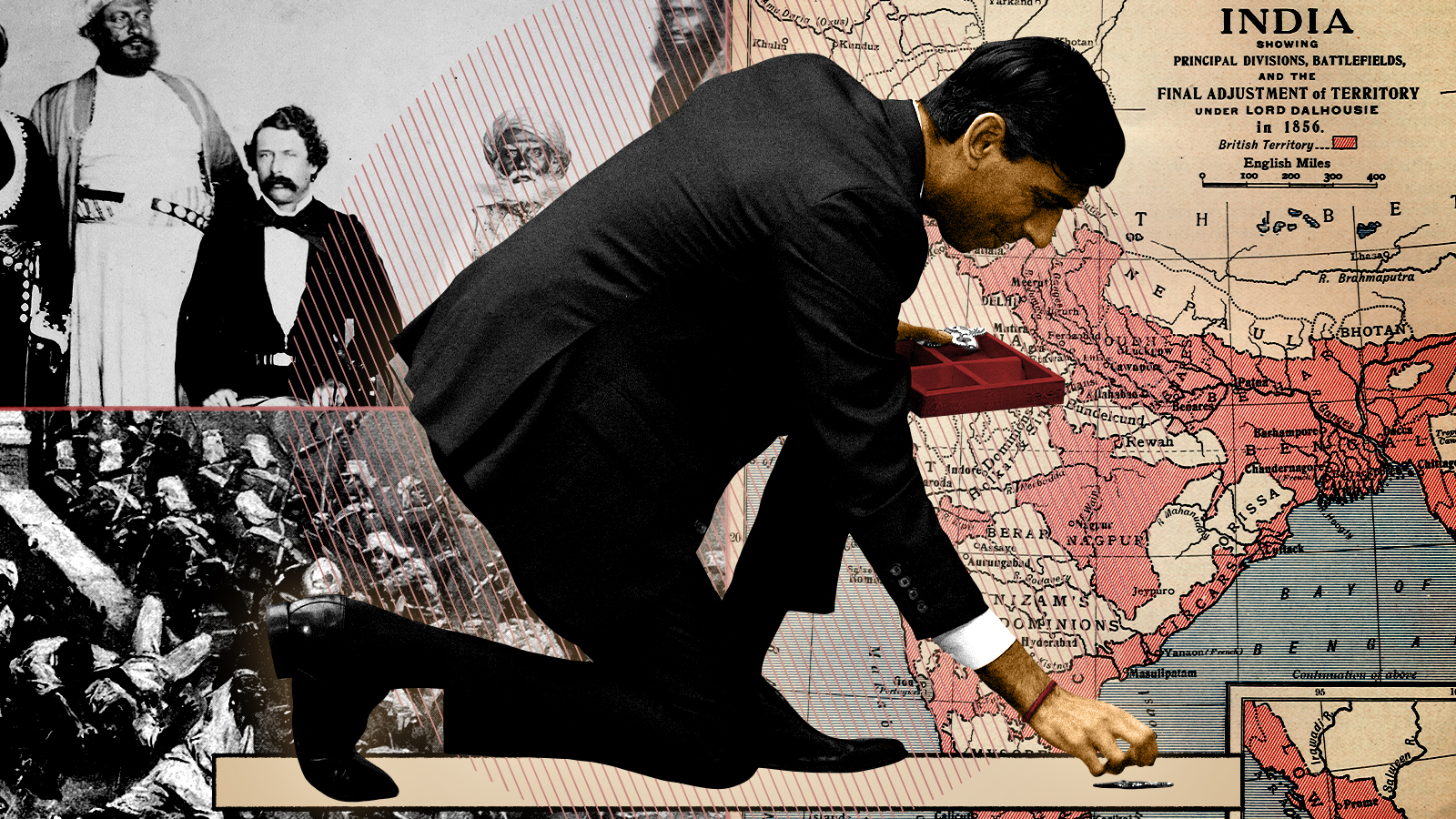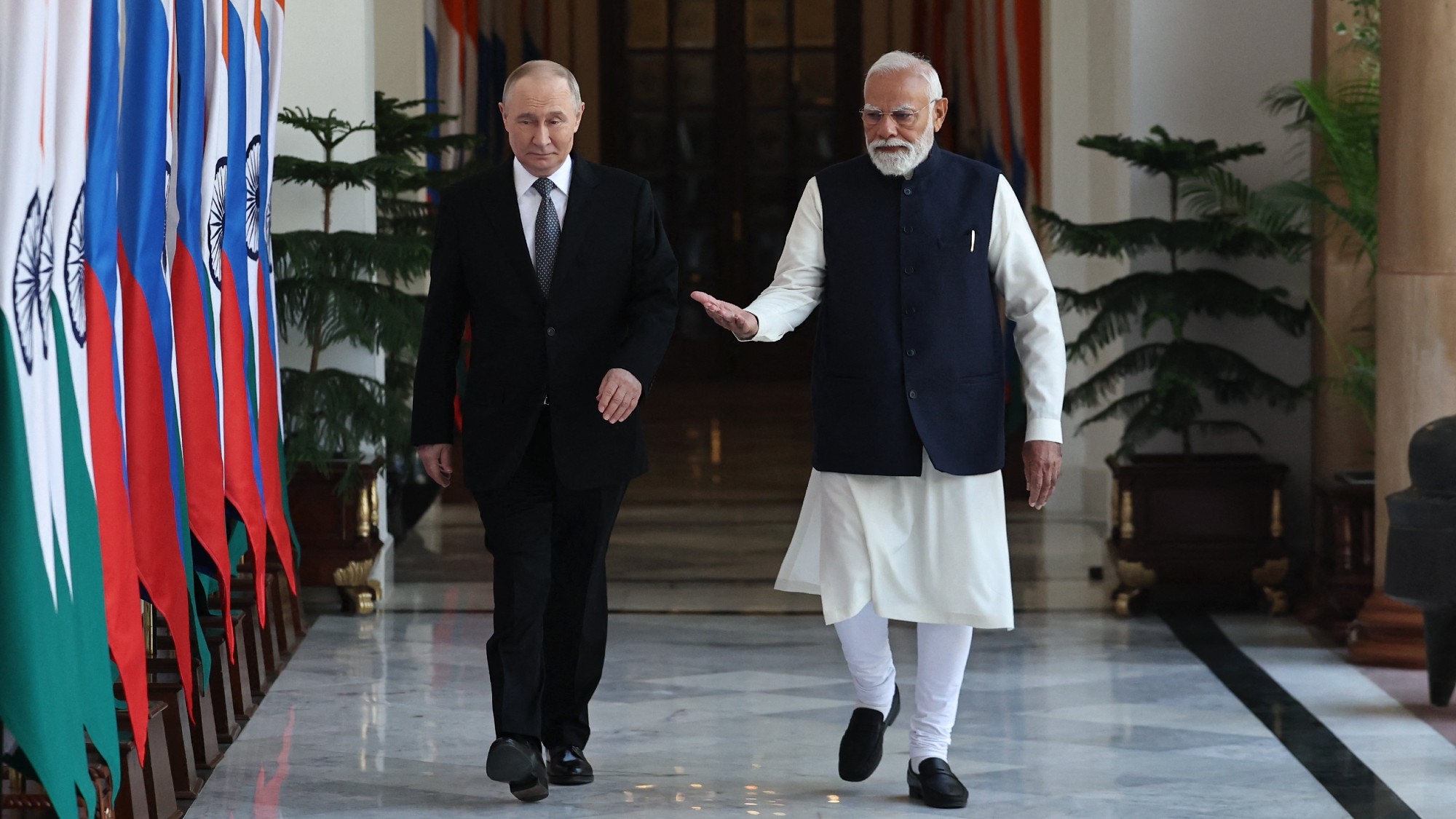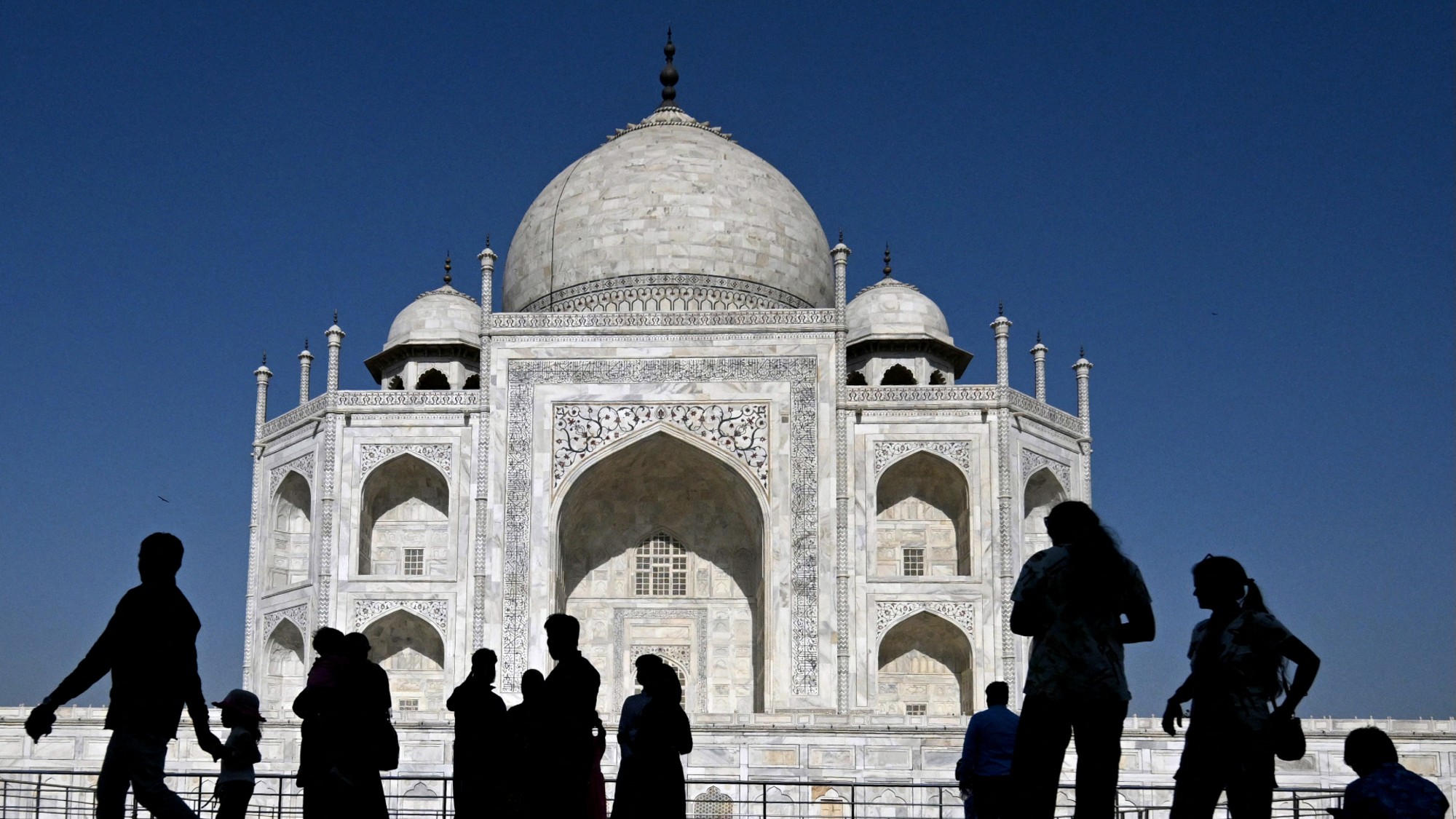Rishi Sunak and the complicated history between Britain and India
A full-circle moment for British colonialism?


A free daily email with the biggest news stories of the day – and the best features from TheWeek.com
You are now subscribed
Your newsletter sign-up was successful
On Diwali, a major Hindu holiday, 42-year-old Rishi Sunak made history by becoming Britain's first prime minister of color. Sunak is a practicing Hindu and the son of African-born immigrant parents of Indian descent; his leadership ascension has caused quite a stir among Indians all over the world. Many view his victory as a full-circle moment for British colonialism, but others are critical of his high level of privilege.
India and Britain have a tumultuous history, with Britain still ruling the country well into the 20th century. However, with Sunak as prime minister, is there potential for a new relationship between the two countries?
What is the history between India and the U.K.?
India was a place of interest for much of European history, including prompting the voyage of Christopher Columbus in 1492. The British were no exception and engaged heavily in trade with the country through the British East India Company. The company had a monopoly in Indian commerce by the 1700s and started creating its own army in the area, even recruiting some Indian citizens in the process, called sepoys. In the mid-1800s, they controlled almost the entire subcontinent; however, after a conflict, called the Sepoy Rebellion, the British monarchy assumed control of what is now India, Pakistan, and Bangladesh, leading to a period of rule known as the "British Raj."
The Week
Escape your echo chamber. Get the facts behind the news, plus analysis from multiple perspectives.

Sign up for The Week's Free Newsletters
From our morning news briefing to a weekly Good News Newsletter, get the best of The Week delivered directly to your inbox.
From our morning news briefing to a weekly Good News Newsletter, get the best of The Week delivered directly to your inbox.
The British Raj lasted from 1858 to 1947, making India's independence fairly recent. The subcontinent was viewed as a very important colony for the British and was even referred to as the "Jewel in the Crown" because of how much India's agriculture, resources, and market helped England during the Industrial Revolution. On the other hand, the East India Company and British rule left many Indians impoverished and subject to violence. Many were forced to sell goods at low prices and pay high levels of taxes leaving them vulnerable to famines.
British imperialism lead to a rise in Indian nationalism and the desire for independence, which was granted in 1947 with people like Mahatma Gandhi leading the movement. Nationalism within the country also led to religious unrest, prompting the subcontinent to be divided into Pakistan for Muslims and India for Hindus and Sikhs in what was the final act of Britain's rule.
Despite this, there are many who believe that British rule helped to develop India since the empire aided in the expansion of infrastructure and the transition of the region into a modern economy. However, others like Amartya Sen, who wrote in The Guardian, say that the claim is based on the notion that "India needed some radical re-examination and self-scrutiny."
Now, Rishi Sunak has become the prime minister of the U.K. just 75 years after the end of colonial rule.
A free daily email with the biggest news stories of the day – and the best features from TheWeek.com
What is the significance of Sunak's prime ministership?
Sunak's leadership is significant for British Indians who are the second-largest ethnic group in the country with a population of 1.5 million people across England and Wales, The New York Times reports. Sunak is very open about his culture and religion, which has fostered pride in the community, and its importance throughout the country. Shivani Dasani, a 22-year-old in London, explained how many South Asians in the U.K. feel that if they are too open with their culture they would be seen as "not properly British," a norm which Sunak is breaking.
Much of the concern about Sunak comes not from his culture, but his wealth. Sunak and his wife are valued at $830 million, making the prime minister more wealthy than the British monarchy for the first time in history, The Washington Post reports. Sunak's wife, Akshata Murty, is the daughter of billionaire Narayana Murthy, who co-founded the IT company Infosys. The family's level of wealth leads some to attribute Sunak's rise to privilege, rather than breaking racial bonds. Zubaida Haque, former executive director of the Equality Trust, said in reference to Sunak's wealth that although the representation is good, it "doesn't mean that Britain has great social mobility." Also, some are concerned that Sunak will be unable to understand the struggles of the common man, the Times continues.
Sunak is also a member of the Conservative Party, which was pro-Brexit and takes a harsher stance on immigration. He also reappointed Suella Braverman, also of Indian descent, as Home Secretary, though she has come under fire for targeting British Indians, claiming that are the worst culprits for overstaying visas.
Even with the criticism, many Indians both in the U.K. and all over the world have taken the stance that a win is a win. Harsh V. Pant, vice president of studies and foreign policy at the Observer Research Foundation, called Sunak's win an "enormous tribute to British democracy and to the role the South Asian diaspora has played in British politics."
"Rishi Sunak's politics or policies aren't the point," Mihir Sharma, an opinion writer for Bloomberg, wrote. "Not when someone who shares our heritage now leads the country that once colonized us."
Is this the beginning of a new relationship between India and the U.K.?
From the moment of Sunak's ascension, India has been considering the opportunities. Indian Prime Minister Narendra Modi congratulated Sunak and called him the "living bridge" for U.K. Indians, NPR reports. Britain could also use investment in India since Brexit came to fruition. India also became the fifth-largest economy in the world, surpassing the U.K this year.
Sunak has also previously expressed interest in working with India. When he was still chancellor, he said, "The U.K. doesn't have a monopoly on opportunity. There's an enormous amount of opportunity in India." In his first speech as prime minister, he vowed, "to place economic stability and confidence at the heart of this government's agenda," The Hindu reports.
Overall, Sunak's position could lead to a new era of collaboration between Britain and India, an exciting turn of events given their shared history. Halima Begum, chief executive of Runnymede Trust, said it best, calling Sunak's rise "a poignant and symbolic moment for a grandchild of the British Empire to take up the highest office of the land."
Devika Rao has worked as a staff writer at The Week since 2022, covering science, the environment, climate and business. She previously worked as a policy associate for a nonprofit organization advocating for environmental action from a business perspective.
-
 Health insurance: Premiums soar as ACA subsidies end
Health insurance: Premiums soar as ACA subsidies endFeature 1.4 million people have dropped coverage
-
 Anthropic: AI triggers the ‘SaaSpocalypse’
Anthropic: AI triggers the ‘SaaSpocalypse’Feature A grim reaper for software services?
-
 NIH director Bhattacharya tapped as acting CDC head
NIH director Bhattacharya tapped as acting CDC headSpeed Read Jay Bhattacharya, a critic of the CDC’s Covid-19 response, will now lead the Centers for Disease Control and Prevention
-
 Local elections 2026: where are they and who is expected to win?
Local elections 2026: where are they and who is expected to win?The Explainer Labour is braced for heavy losses and U-turn on postponing some council elections hasn’t helped the party’s prospects
-
 How ‘Manchesterism’ could change the UK
How ‘Manchesterism’ could change the UKThe Explainer The idea involves shifting a centralized government to more local powers
-
 What is at stake for Starmer in China?
What is at stake for Starmer in China?Today’s Big Question The British PM will have to ‘play it tough’ to achieve ‘substantive’ outcomes, while China looks to draw Britain away from US influence
-
 The billionaires’ wealth tax: a catastrophe for California?
The billionaires’ wealth tax: a catastrophe for California?Talking Point Peter Thiel and Larry Page preparing to change state residency
-
 Bari Weiss’ ‘60 Minutes’ scandal is about more than one report
Bari Weiss’ ‘60 Minutes’ scandal is about more than one reportIN THE SPOTLIGHT By blocking an approved segment on a controversial prison holding US deportees in El Salvador, the editor-in-chief of CBS News has become the main story
-
 Is a Putin-Modi love-in a worry for the West?
Is a Putin-Modi love-in a worry for the West?Today’s Big Question The Indian leader is walking a ‘tightrope’ between Russia and the United States
-
 ‘These attacks rely on a political repurposing’
‘These attacks rely on a political repurposing’Instant Opinion Opinion, comment and editorials of the day
-
 UK, Colombia halt intel to US over boat attacks
UK, Colombia halt intel to US over boat attacksSpeed Read Both countries have suspended intelligence sharing with the US over the bombing of civilian boats suspected of drug smuggling
